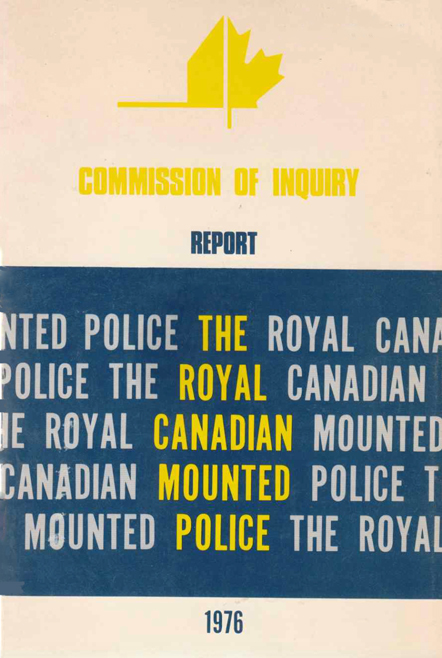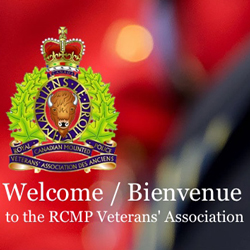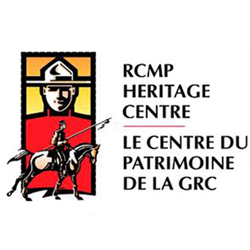RNWMP: Rules For Members In Jail
Veteran Jim Scott sent us the following details on the Rules For Common Gaol Prisoners and we have expanded details to include RNWMP policy regarding Force members sentenced to jail time.
ROYAL NORTH WEST MOUNTED POLICE GAOL
Rules For Common Gaol Prisoners
1. The first duty of a prisoner is strict obedience.
2. Strict silence shall be observed; prisoners shall not speak to one another.
3. Prisoners shall always approach all gaol officials in a respectful manner, speak in a respectful tone of voice, and in as few words as possible make known their requests.
4. When called to attention, they shall assume that position, looking straight to their front.
5. They shall at all times look straight to their front in going to and returning from work.
6. No prisoners shall possess himself of tobacco, matches or any contraband articles, instrument or tool, no matter how small the size or quantity, and any attempt to smuggle any such thing into the prison will be dealt with as a disobedience of orders.
7. Prisoners shall labour diligently during working hours; they shall pay the closest attention to orders given by their escorts, and to endeavour to correct themselves immediately upon being checked.
8. Every prisoner shall weep out his cell thoroughly upon getting up, empty slop pail, and make up his bed in the regulation manner and no prisoner shall on any pretext enter the cell of another.
9. Every prisoner shall keep his cell neat and clean.

Photograph of the RNWMP Guardroom at “Depot” Division (Source of photo – RCMP Veterans’ Association – Vancouver Division’s Photo Collection).
NWMP General Orders of 1895
With the creation of the Force in 1873, the paramilitary organization adopted the military discipline and sanctions model to condition individuals into a standard of behaviour and performance expectations.
Force manuals were eventually created to provide consistency across the Force. This practices has continued to this day.
In the NWMP General Orders of 1895 there were only two specific sections relating to Force members and their imprisonment:
Section 104 – stated Officers commanding are not to relax prison discipline without the commissioner’s authority in writing, except on medical certificate.
Section 105 – All keys of handcuffs and shackles must be kept in a lock-up in charge of the provost, or in his absence the non-commissioned officer of the guard. Great care must be taken to prevent prisoners getting possession of keys of this kind.
RNWMP Rules And Regulations 0f 1909
With the progress of 14 years (from 1895 to 1909), the Force manual increased from 40 pages to 386 page. In the 1909 RNWMP Rules And Regulations Manual, there were more specific details relating to the conduct and discipline of Force Members.
Section 149 outlined the offences for which a member would be disciplined:
Every member of the Force, other than a commissioned officer, who is charged with:
(a) Disobeying, or refusing to obey the lawful command of, or striking his superior.
(b) Oppressive or tyrannical conduct towards his inferior.
(c) Intoxication, however slight.
(d) Having intoxicating liquor illegal in his possession, or concealed.
(e) Directly or indirectly receiving any gratuity, without the Commissioner’s sanction, or any bribe.
(f) Wearing any part emblem.
(g) Otherwise manifesting political partisanship.
(h) Overholding any complaint.
(i) Mutinous or insubordinate conduct.
(j) Unduly overhauling any allowances or any other public money entrusted to him.
(k) Misapplying or improperly withholding any money or goods levied under any warrant, or taken from any prisoner.
(l) Divulging any matter or thing which it is his duty to keep secret.
(m) Making any anonymous complaint to the Government or the Commissioner.
(n) Communicating, without the Commissioner’s authority, either directly or indirectly, to the public press, any matter or thing touching the Force.
(o) Wilfully, or through negligence or connivance, allowing any prisoner to escape.
(p) Using any cruel, harsh or unnecessary violence towards any prisoner or other person.
(r) Deserting or absenting himself from his duties or quarters, without leave.
(s) Scandalous or infamous behaviour.
(t) Disgraceful, profane or grossly immoral conduct.
(v) Any disorder or neglect to the prejudice of morality or discipline, although not specified in the Act or in rules or regulations,
may be forthwith placed under arrest and detained in custody, to be dealt with under the provisions of the Act.
Section – 114 – Every member of the Force is to receive the lawful commands of his superior with deference and respect, and execute them to the best of his ability, without questions or comment.
Members of the Force charged under Section 29 of the Royal Northwest Mounted Police Act, are not entitled to have counsel appear at the trial in their defence.
The member charged with one or more of the above offences would appear before a Service Court chaired by their Commanding Officer. Evident would be presented and the verdict would be brought down. To ensure consistency of sentences, the Commanding Officer would send his report and findings to the Commissioner. The convicted members would have the right to appeal the sentence by sending his letter to the Commissioner of the Force.

Photograph of the NWMP, RNWMP & RCMP Guardroom in “Depot” in Regina (Source of photo – RCMP Veterans’ Association – Vancouver Division)
Other sections of the RNWMP 1909 Manual relating to a Force member prisoner are as follows:
Section 140 – Custody in the case of a member of the Force, other than a commissioned officer (not under sentence), means either the making of him a prisoner at large, or the placing of him in confinement, under charge of a guard.
Section 141 – If a member of the Force, other than a commissioned officer, is charged with a serious offence, he shall be placed in confinement, where it is necessary to ensure his safe custody, or to maintain discipline.
Section 142 – A member of the Force, other than a commissioned officer, against whom a large is pending, if at large, shall not quit the barracks or post at which he is stationed, unless ordered, or in the performance of his Police duties; and until his case is disposed of, he will be liable to perform all Police duties.
Section 153 – In all cases of imprisonment under sentence, the pay of the offender shall be forfeited during the period of imprisonment or desertion, or both.
In cases where imprisonment may be deemed too severe a punishment, Commanding Officers are authorized to award “confinement to barracks” for any period not exceeding twenty-eight days, with or without fine.
Section 164 – Intoxication, however slight, is an unusually reprehensible offence, in members of the Force, and as such must be severely dealt with, even though it may be a first offence. The Police Act forbids “intoxication, however slight.”
Section 207 – Members of the Force, other than a Commissioned Officer, shall serve imprisonment awarded them in a guardroom of the Force.
Section 210 – They (prisoner) shall wear ‘fatigue order‘ of dress, except for inspections, when they will wear ‘undress order‘ and shall at all times be clean and tidy, and shall have their hair cut.
The Force’s disciplinary process evolved during the 1970s and 1980s with the introduction of informal and formal disciplinary actions. The 1976 Report of the Commission of Inquiry Relating to Public Complaints, Internal Discipline and Grievance Procedures within the Royal Canadian Mounted Police found that the Force’s disciplinary process was essentially punitive and adversarial.
Force management at the time acknowledged that the Force disciplinary system was lacking impartiality and procedural rights. To correct this situation, the Adjudications Branch was formed in 1981 with legally trained members to act as trial officers, defence and prosecution counsel.
The 1988 amendments to the RCMP Act created a wider range of disciplinary options and removed the penalty of imprisonment.
Details on the current RCMP disciplinary process can be reviewed here.


 June 30, 2015
June 30, 2015 












